African-American writer, commentator, activist, and educator Nikki Giovanni hit the nail on the head when she said, “Hip hop is a cultural expression – it’s embracing.” It’s an art form, poetry in motion, allows a story to be told and instils a sense of belonging, which is exactly the philosophy behind the Indigenous Hip Hop Project (IHHP).
IHHP employs hip hop as a tool to engage with Aboriginal communities all over the country. They specialise in week-long intensive projects in Dance, Music, Film, Art and Culture, and work on the principle of “arts for change”.
The project includes more than 45 professional artists from rich and diverse cultural backgrounds. All of them work tirelessly to bring, on average, 55 week-long projects, performances at over 30 festivals, conferences and events per year.
The project’s founder and co-director, Dion Brownfield (aka “Mono Rock”) is a hip hop dancer, producer and “master of youth engagement” who is deeply passionate about the work the project does. He says that music, especially hip hop, is an influential tool when engaging the youth.
“For young people, whether you’re Indigenous or non-Indigenous, everyone relates to hip hop. It enables you to have the freedom to express yourself and get things off your chest, have a say or tell your story,” he explains.
“Just to see the power of music and dance and the effect it has on young people, I knew it was a really powerful tool for engagement.”
Since its conception in 2005, IHHP has been focusing on the strengths of the Aboriginal people they visit to build confidence, develop skills and to help release trauma and negativity through the use of positive engagement techniques, most notably the production of music videos. Some of these have amassed quite a viewing online.
“After a bit of nurturing, directing and teaching them the right way to go about it, there’s a transformation. I think it’s so powerful that music and dance can enable people to break through,” he says.
“It enables young blackfellas to create their own Dreaming in a contemporary way. The stories of the elders and ancestors are still flowing through them, that traditional knowledge is really important for identity,” he says.
“I think that’s a big part of the reason why young people identify with hip hop and our project.”
According to Dion, there is immense talent among the people the project works with, not to mention Indigenous artists like Jimblah, Yung Warriors and Briggs. He says that it’s only a matter of time before Indigenous hip hop breaks through to the American scene because of its similarities.
“I don’t think it’s going to be too long before Indigenous hip hop as a genre really starts to get a lot of interest in America because African-Americans went through a similar struggle,” he says.
Growing up in Yorta Yorta country, Dion said he was the “token whitefella” and really identified with Aboriginal culture. Through his journey with IHHP he says he has gained even more insight into culture and is the “luckiest person on earth”.
“The amount of knowledge I’ve got and the different tribes that have given me the privilege of being welcomed on to their country, to go through literally hundreds of creative processes with them and the sharing of knowledge… I can’t explain what I’ve gotten back from them,” he says.
“It’s like I have an encyclopaedia in my head of traditional knowledge. To be able to travel around Australia and see the true magic and beauty is truly amazing. I can’t think of anyone in the world who has a job as good as mine.”
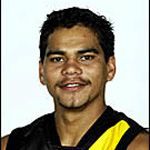
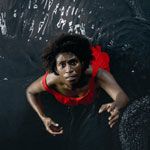
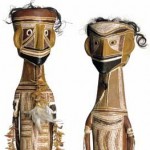
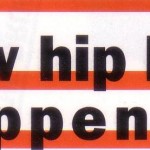
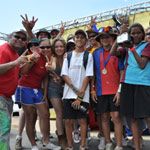
dion you make me proud. There are many of us good whitefellas. At least we are doing our part to educate people that have been taught to hate. Through hip hop the message just may get through! Keep up the good work mate.